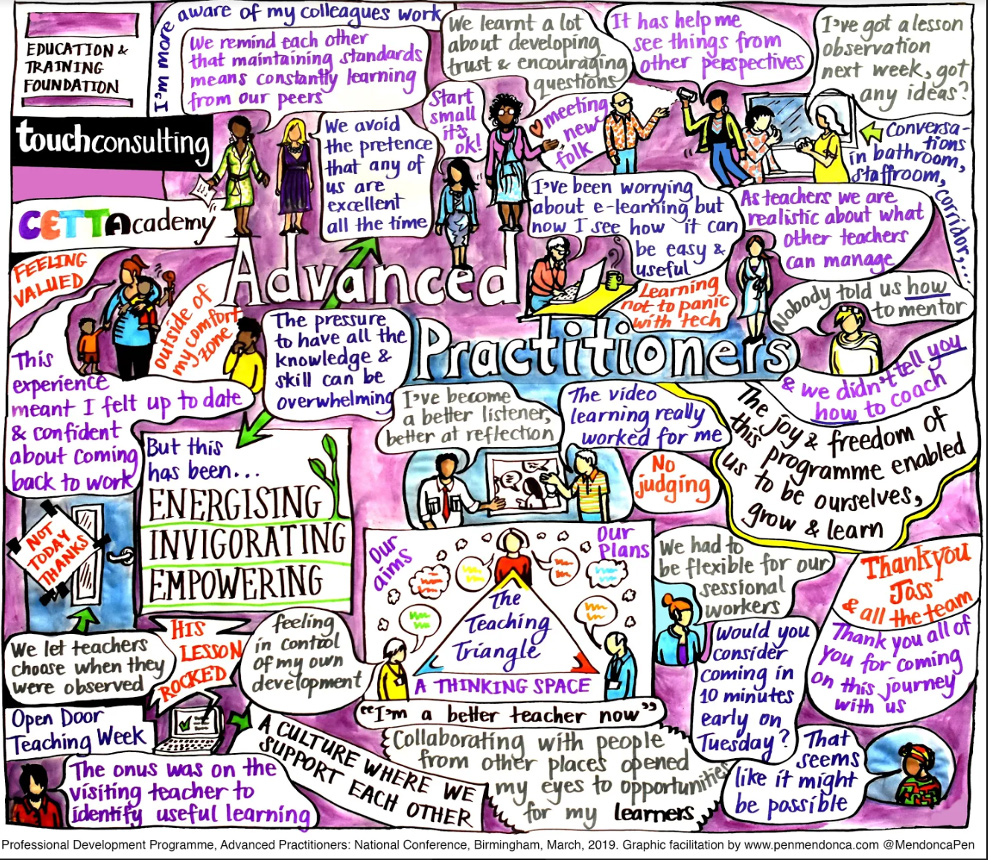BAMEed – FE #APConnect Workshop Series
BAMEed – FE #APConnect Workshops
The team at touchconsulting Ltd has been working in partnership with the BAMEed Network throughout year 3 of the Education and Training Foundation’s #APConnect programme. As delivery partners for the ETF’s national APConnect programme, the team at touchconsulting believes it has a responsibility to contribute to greater equality and diversity in FE.
BAMEed Network and APConnect are now delighted to be able to announce that we are hosting a series of fully-subsidised workshops organised and led by Lizana Oberholzer and her team. These will take place throughout April 2021. Places are prioritised for FE practitioners from BAMEed communities. We are limiting each workshop to 15 places to enable participants to actively contribute lived experiences.
Bookings are now open.
BAMEed – FE #APConnect Events:
| Who are you? Authentic Leadership and Identity | Friday 9th April 2021 16:00 - 18:00 | Co-ordinator: Lizana Oberholzer | Bookings now open! |
| Personal branding and social media | Friday 16th April 2021 16:00 - 18:00 | Co-ordinator: Lizana Oberholzer | Bookings now open! |
| Blogging & publishing (journals and publications) | Friday 23rd April 16:00 - 18:00 | Co-ordinator: Lizana Oberholzer | Bookings now open! |
Why?
Our motivation hasn’t arisen out of programme evaluations, but from our own experiences of training in rooms full of white faces. In fact, the most recent FE Workforce Data, commissioned by ETF [1] shows the proportion of BAME staff hasn’t changed substantially over time and is slightly lower than the England and Wales population as a whole (the data is not straightforward as the last census was 9 years ago). The compelling point is we know from our own research [2]:
- APs are-in the main-employed on substantive, if not permanent, contracts rather than sessionally. Often, they are on some form of career/leadership path, should they choose to pursue it.
- The proportion of BAME middle/senior leaders has slightly decreased over time, whereas the proportion of BAME students has risen substantially, from 13.3% to 21.3%, despite overall FE participation dropping by 1.6 million [3].
- FE-specific research is hard to come by, but we know from the work of Professor Kalwant Bhopal and others [4] that Black and Asian mentors can have a profoundly effective impact on teachers of colour.
- We also know (from work of researchers in the US and UK) that students of colour benefit from having at least one Black, Asian, Latinx or Indigenous (US) teacher in their lives.
- Nearly 12% of the UK workforce declare a disability, according to a census from nearly a decade ago. Only 6% of the FE workforce declare a disability and, of those, half decline to say what their disability is (they are most likely to declare a physical disability).
- We know that co-producing learning experiences with someone who has lived experience of mental or physical ill-health can be hugely beneficial [5].
- Yet students with disabilities are 4.3 percentage points more likely to achieve a qualification than they were 7 years ago. We are getting something right for students – but not for staff?
It seems reasonable to conclude that Black, Asian and Minority Ethnic people are increasingly gathering at the least powerful end of FE.
[1] https://www.et-foundation.co.uk/wp-content/uploads/2020/06/SIR27-REPORT-FOR-PUBLICATION.pdf
[2] Survey of APConnect Year 1 participants, 2019.
[3] https://www.ethnicity-facts-figures.service.gov.uk/education-skills-and-training/a-levels-apprenticeships-further-education/further-education-participation/latest
[4]White Privilege: The Myth of a Post Racial Society (and the body of academic research which supports it).
[5] https://www.rethink.org/media/2591/progress-through-partnership.pdf

